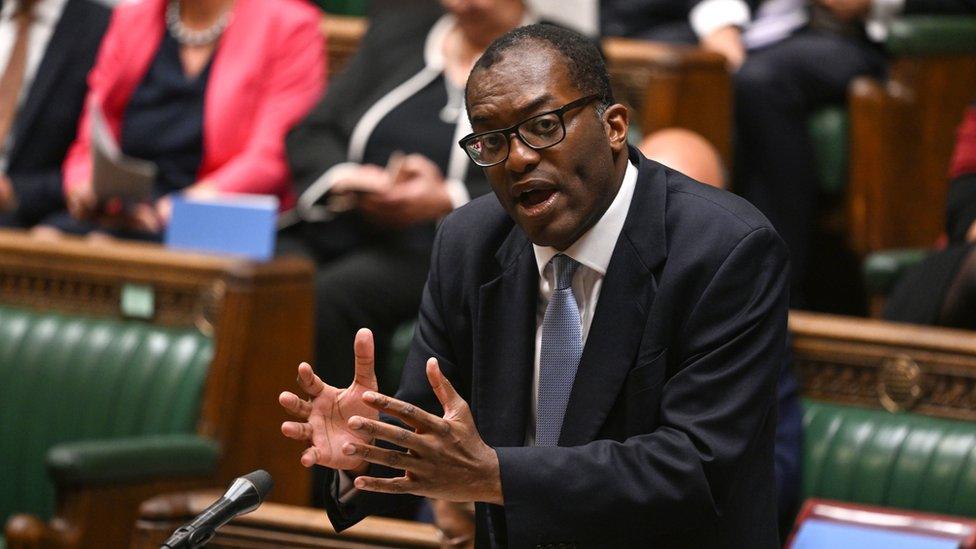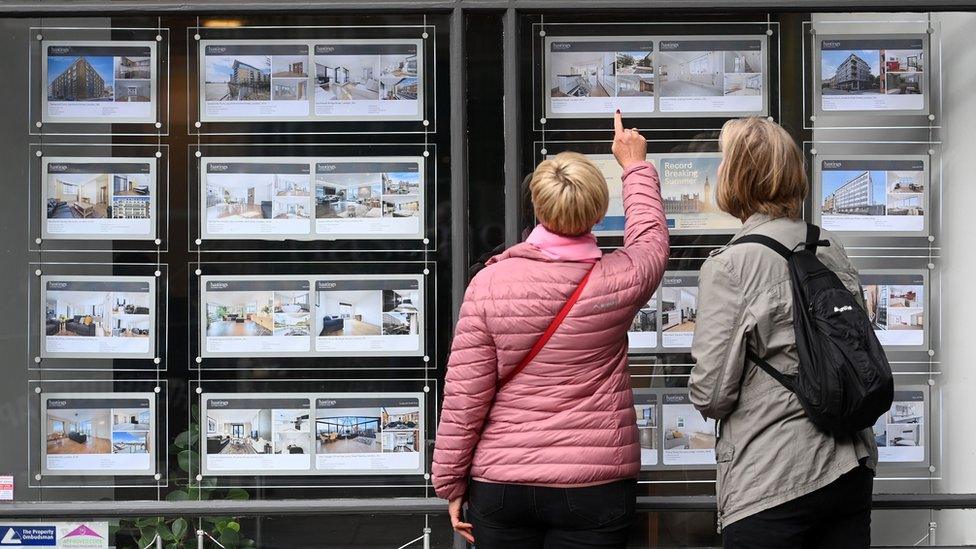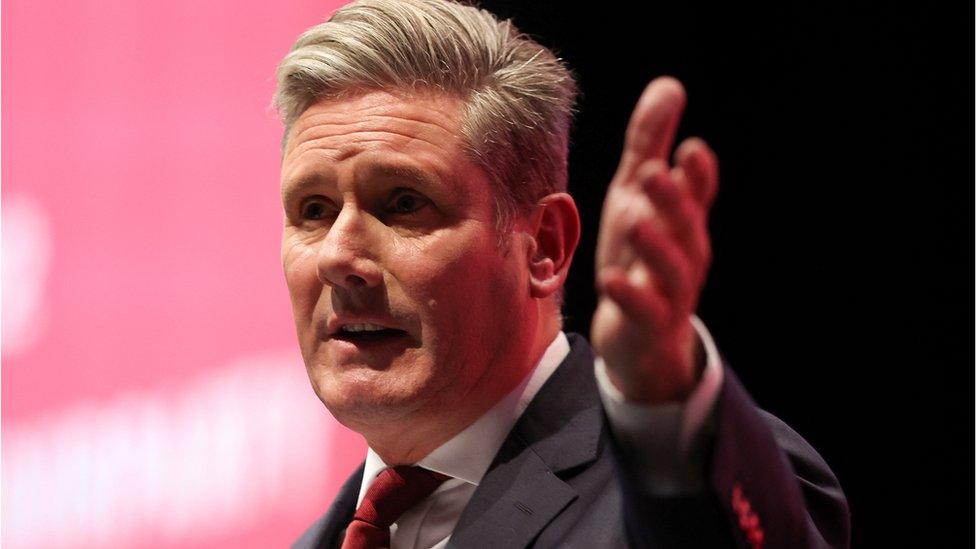Nicola Sturgeon says UK economic crisis worst in memory
- Published
Nicola Sturgeon said the Bank of England's intervention showed the UK in the grip of a "deteriorating economic crisis".
Scotland's first minister has warned that the UK could be facing a worse economic crisis than the 2008 global financial crash.
Nicola Sturgeon described the fallout from tax cuts announced by the Chancellor last week as "extraordinary and unprecedented".
Ms Sturgeon called for the UK government to reverse its income tax cuts for the highest earners.
She said the move would be a sign of "some kind of sense being restored".
The first minister was speaking as the Bank of England warned of a "material risk to UK financial stability" if the volatility continued.
It said it would start buying government bonds at an "urgent pace" to help restore "orderly market conditions".
The pound slumped in value by 1.6% against the dollar to $1.05 on Wednesday morning, while lenders withdrew about a quarter of mortgage products overnight as they grappled with the prospect of further rises in interest rates.
And the International Monetary Fund (IMF) has rebuked the government's £45bn tax-cutting plans as being "risky" and likely to increase inequality.
Ms Sturgeon told a committee of senior MSPs at Holyrood that the Bank of England's intervention was "extraordinary" and showed that the UK was in the "grip of a rapidly deteriorating economic crisis".
And she said the mini-budget unveiled by Chancellor Kwasi Kwarteng last Friday had sparked the most serious situation for the UK economy in memory, possibly even including the 2008 global financial crisis which led to governments having to bail-out banks and other financial institutions.
The first minister called for immediate action to be taken, and for MPs to return early to the Parliament from recess.
And she said that "as an immediate symbol of some kind of good sense being restored, the decision to abolish the top rate of tax should be reversed".
Ms Sturgeon added: "I don't think it is possible to overstate the damage of this budget."

Kwasi Kwarteng was insisted that his tax cuts will grow the economy and improve living standards for everyone
Mr Kwarteng announced in last week's mini-budget that the basic rate of income tax will be cut from 20% to 19% from April of next year.
He also pledged to abolish the 45% additional rate of tax, which is paid by people who earn more than £150,000 a year - a tax saving of nearly £3,000 a year for somebody with an annual income of £200,000.
The chancellor insisted he was "confident" his tax-cutting strategy - which formed a key part of the campaign pitch by Prime Minister Liz Truss during the Conservative leadership election - would deliver the promised economic growth.
The changes do not apply in Scotland, where income tax rates and bands are decided by the Scottish government.
It means the 40% higher rate, for earnings of over £50,270, will be the top rate elsewhere in the UK.
But in Scotland everyone earning between £43,663 and £150,000 currently pays 41%, external, with those earning more than £150,000 paying 46%.
Former Conservative MSP Prof Adam Tomkins described the UK government tax plans as being "profoundly unconservative" and proof that the UK "needs a Labour government".
In a column for the Herald newspaper, external, Prof Tomkins - who left Holyrood last year - accused the Conservatives of "trashing the economy" and said it was clear that their time in power "is up".
Meanwhile his former Scottish Conservative colleague, Graham Simpson MSP, told the BBC's Good Morning Scotland programme that he was unaware of the International Monetary Fund's concerns about the mini-budget, which were released on Tuesday and featured prominently across the media.
When he was asked about the IMF intervention on Wednesday morning, Mr Graham responded: "That's the first I've heard of it so you're springing that one on me", before going on to say he thought the Chancellor was doing a good job.

Banks have begun withdrawing mortgage products for customers as a result of the fallout from the mini-budget
The Scottish government will set out its taxation plans in the coming weeks - but Ms Sturgeon has already indicated that she will not follow the chancellor in cutting rates for the highest earners.
The Treasury has said its plans - which were to be funded by £72bn of borrowing and include scrapping the limit on bonuses for bankers - were focused on growing the economy, which it said would "raise living standards for everyone".
But Labour leader Sir Keir Starmer, who has pledged to reverse the income tax cuts for the wealthiest, said the government had "completely lost control of the economy".
- Published28 September 2022
- Published28 September 2022

- Published28 September 2022
